Discover family history at State Library
By Kirsten Perris, Library Technician, Information and Client Services | 7 May 2025
Family history research involves the use of various resources that help unearth facts and stories about one’s ancestors. Whether a family history researcher is just starting out or an experienced genealogist, State Library of Queensland has a wide-ranging family history collection available to explore. The following resources are just a selection of what is on hand at State Library.
Early New South Wales (NSW) church parish records 1788-1856
Civil registration in NSW was established in 1856. This means that it is necessary to rely mainly on church records for most of the information about births, deaths and marriages that occurred in Australia prior to this date. These records include baptisms, marriages and burials in Moreton Bay, which was part of NSW during that time.
These records can be searched online from home through New South Wales registry for births, deaths and marriages or through the microfiche NSW pioneers’ index 1788-1888. The early church records can then be found on microfilm. Both the microfiche index and the microfilm are available on level 3 at State Library. Microfilmed records will have a ‘V’ reference number in the index. The microfilm holds register volumes 1-123 only (reels 5001-5048). The original volumes are held at NSW State Archives. Register volumes 124 onwards are not available on microfilm as they are under the control of the NSW Registry of Births, Deaths and Marriages.
For anyone looking for early Queensland and NSW births, deaths and marriages this is a good place to start, and you get to see copies of the original handwritten documents.
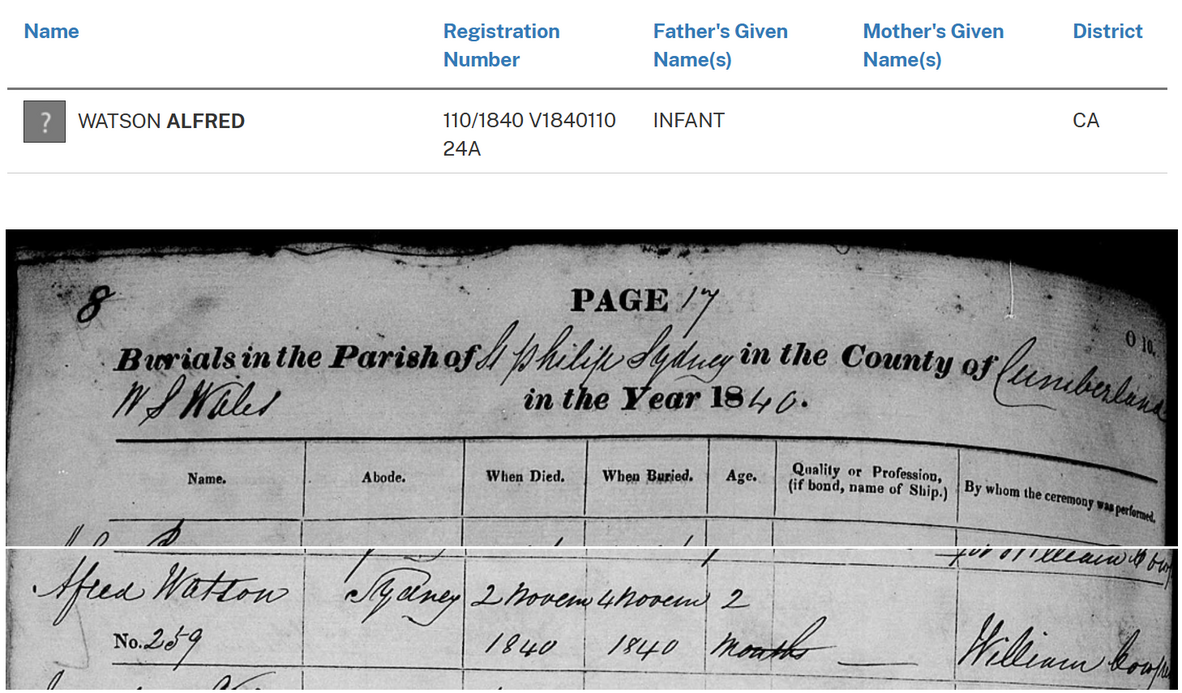
: NSW registry for births, deaths and marriages online index death entry, and copy of entry from original document.
Electoral rolls
Electoral rolls are a great way to track people through time to a place. They contain valuable information including:
- addresses,
- occupations,
- land holdings, and
- status, as men had to be wealthy to be entitled to vote in the 19th Century, and those who owned land in more than one electorate could vote in each place.
Legislation around the right to vote changed as society changed. Women gained the right to vote in Australian states and territories between 1894 and 1908. Voting become compulsory for people aged over 21 in 1925 and in 1973 this changed to over 18 years. First Nations peoples gained the right to vote in 1962.
State Library holds one of the most complete sets of 20th century commonwealth electoral rolls on microfiche that covers most states of Australia. The years range from 1903 to 2008, which takes the accessible records beyond what’s available through Ancestry (1903-1980). Queensland 19th century state electoral rolls, accessed on CD-ROM or microfilm, can also be found at State Library.
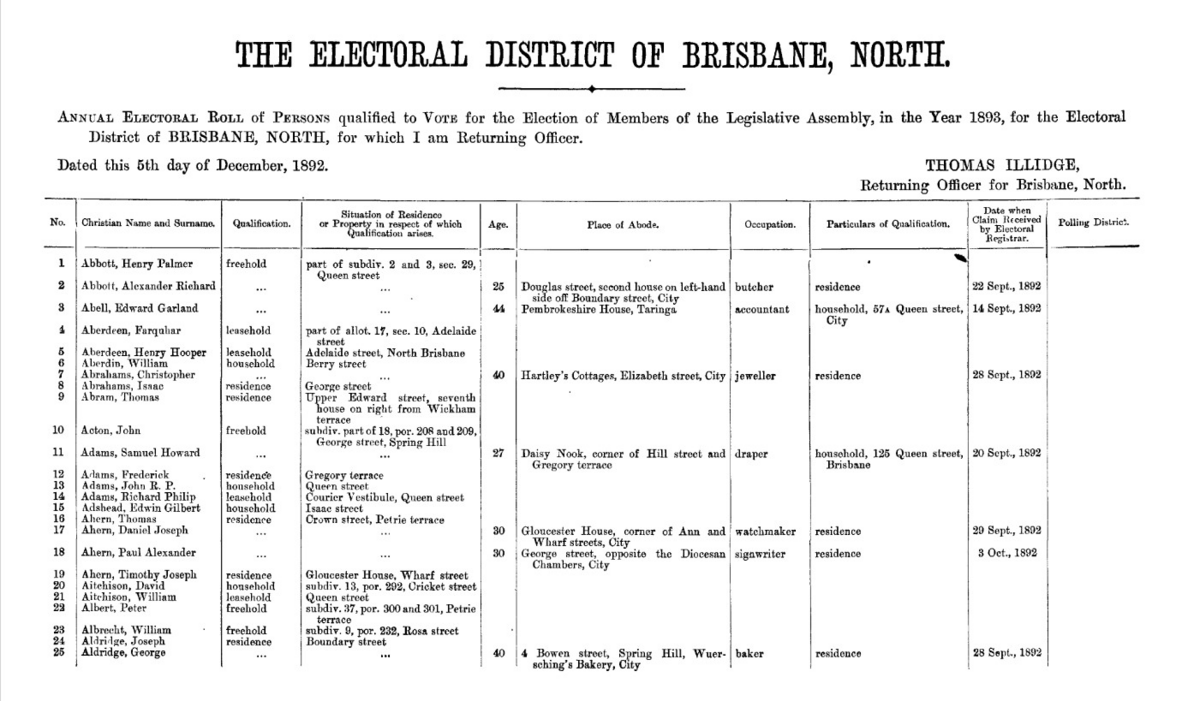
Queensland state electoral roll, District of Brisbane North, 1893.
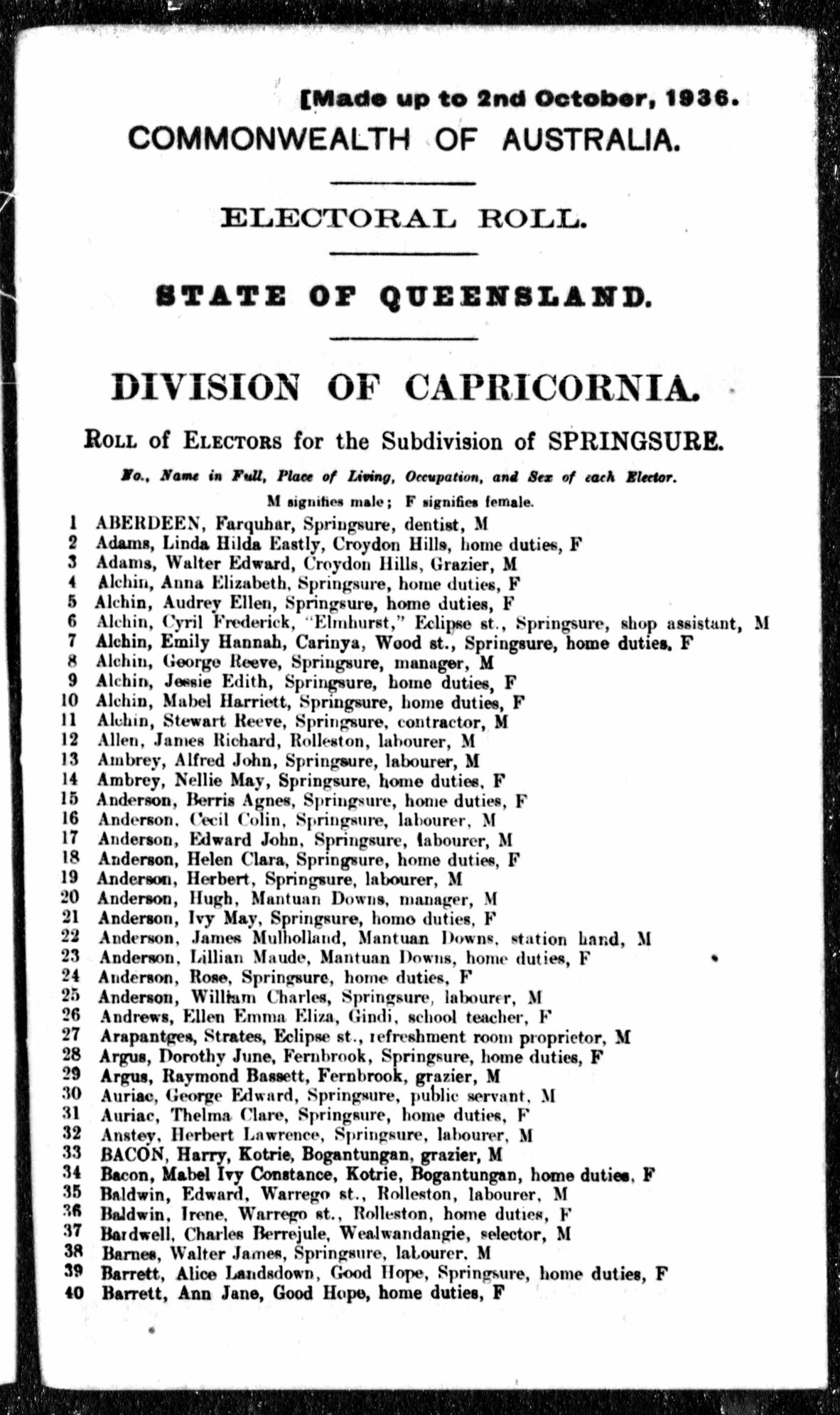
Queensland commonwealth electoral roll, Division of Capricornia, Subdivision of Springsure 1936.
Newspapers
Newspapers are an amazing source for finding information on people, families, places and history itself. They can be used to locate obituaries, funeral, birth, and marriage notices; accidents, inquests and inquiries; shipping intelligence like passenger lists; as well as personal and social notices like descriptions of weddings or engagement notices. Sometimes the information reported about someone may not be found anywhere else.
State Library has a large collection of newspaper sources, from microfilm and paper copies to online databases to clipping files, scrapbooks and cuttings books. The newspapers date from the 18th century through to current day depending on the newspaper, when and where it was published. Much of the collection consists of Queensland newspapers but a small number of interstate and international newspapers are also available.
Remember, not only does State Library hold newspapers from all over Queensland, some of which have yet to be digitised, but for years beyond what is available on Trove digitised newspapers.
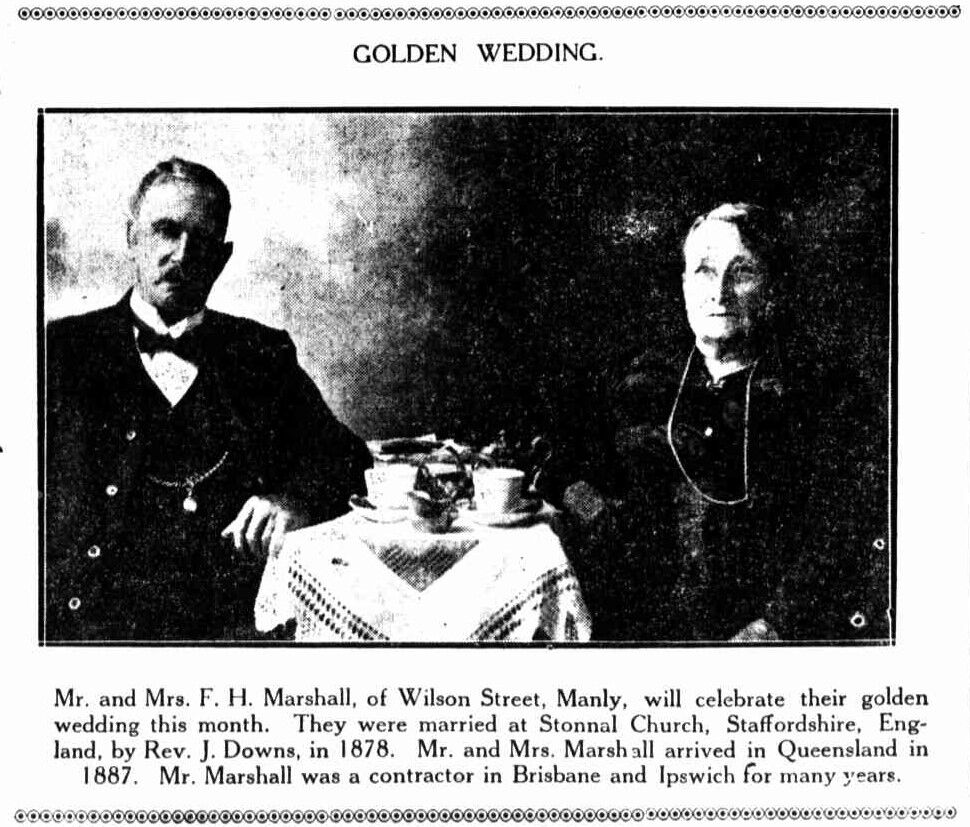
'GOLDEN WEDDING.', The Telegraph (Brisbane), 10 December 1928, p. 14, http://nla.gov.au/nla.news-article178473778
State Library’s family history indexes
Many of State Library’s unique historical indexes have been created by our volunteers and are very useful to family history and historical researchers. The indexes have been created from material held at State Library such as Queensland Parliamentary Papers and Colonial Secretary’s correspondence.
You can find railway employees, people from all walks of life who might have been called to appear at a government committee, early Queensland settlers (convict or free), soldier portraits for the Boer War and World War I, mining accidents and more. There is also the Tindale and Margaret Lawrie genealogy indexes for those searching for their First Nations heritage.
The family history indexes can be accessed online through our family history eresources and indexes page, or can be searched through One Search via ‘State Library family history indexes’. If you find an ancestor, ask us and we can send you the information. Increasingly it’s possible to find digital items attached to these records like a portrait of soldier from WWI, an original letter or a digitised page from a published document.
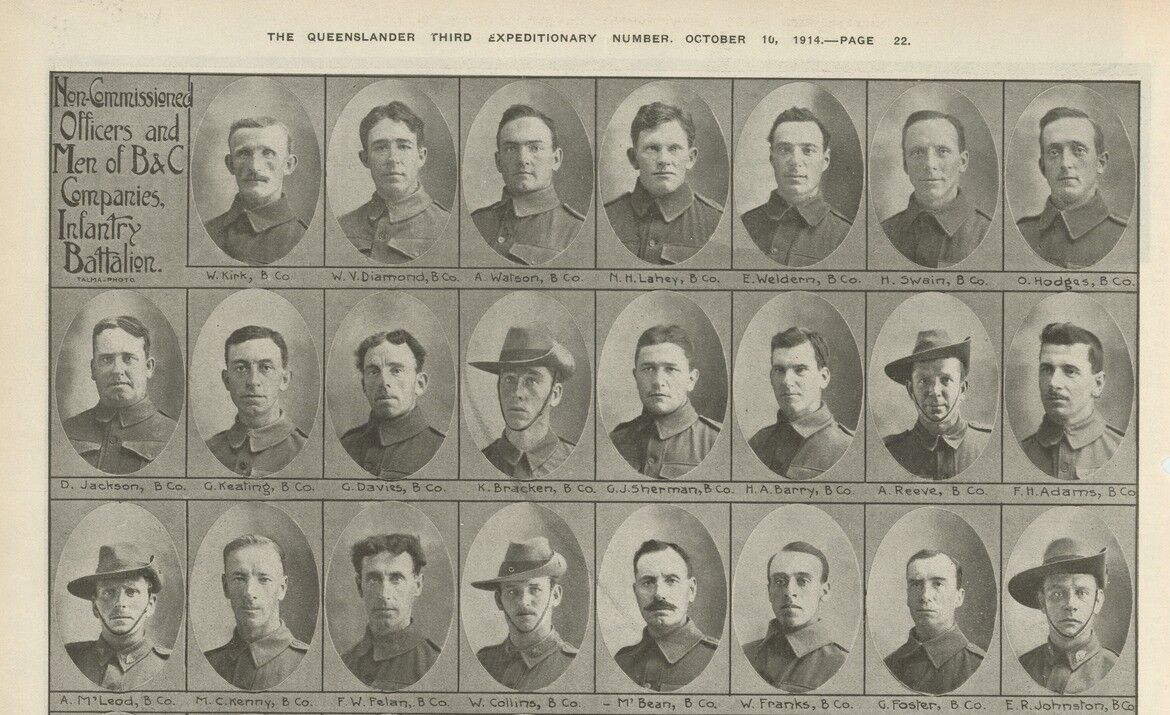
Part of Page 22 of The Queenslander Pictorial, supplement to The Queenslander, 10 October 1914. https://onesearch.slq.qld.gov.au/permalink/61SLQ_INST/188log9/alma99183906294802061
State Library is a fabulous place for family history research, providing access to a range of material for beginners and experienced researchers alike. So, whether you’re coming into the library to use our collections or accessing our resources online from home, why not take the time to explore what we have to offer. Remember, you can visit us online, ask us a question or come in and see us. We are happy to help. Don’t forget to become a member and enjoy.
Comments
Your email address will not be published.
We welcome relevant, respectful comments.